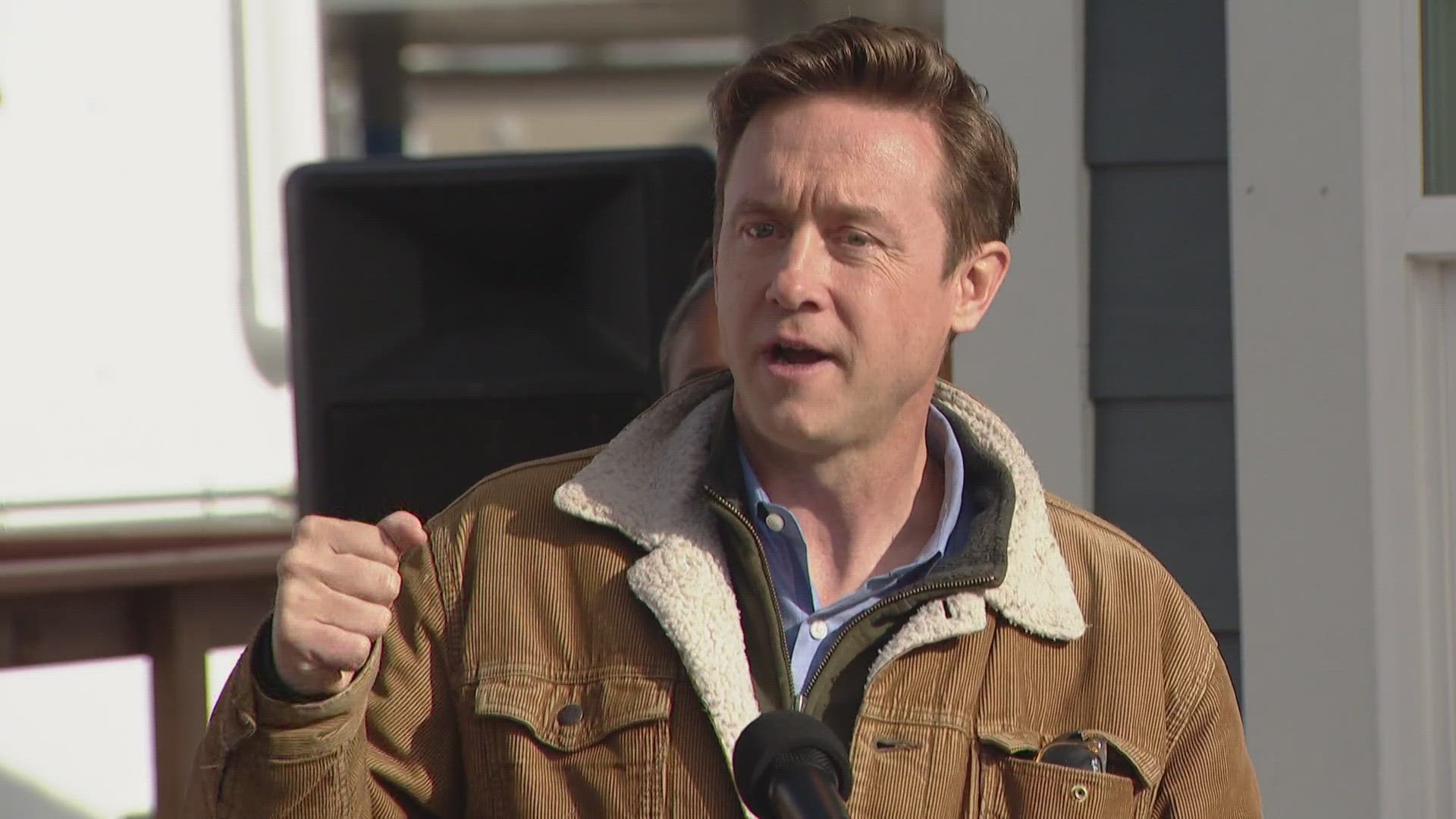DENVER — Denver Mayor Mike Johnston made it the city's goal to house 1,000 people by the end of 2023. The city's House1000 Dashboard shows they've surpassed that goal.
"I am proud to announce that as of yesterday, this city succeeded in under six months moving more than 1,000 people off the streets and into housing," Johnston said in a news conference Sunday.
One of those people is Rayleen, who asked us not to include her full name for safety reasons.
"I was homeless with two little babies -- these ones right here -- not knowing next steps or where to go, not having a foundation or any kind of path to go on to gain permanent housing," Rayleen said.
With help from the Salvation Army and services from the city, she said, she and her family now have a home.
“They give us hope and they give us a pillar to look to, which I am so grateful. I’m now in my own permanent housing. I’ve gotten to my own home with three bedrooms,” Rayleen said. "All we have to do now is go up. And I'm completely and ultimately grateful for that. I can provide a better future for my kids."
Earlier this month, the city changed how they count who is housed. City leaders previously stressed the dashboard would measure those in shelter 14 days or longer. In December, the city dropped that 14-day requirement.
9NEWS asked Johnston if the city could have met its goal without that change.
"We were always focused on two questions. One is the people we've moved off the streets indoors, and then the question is how long they stay indoors. And so this is why we've built the dashboard that does both of those – it both says who has moved indoors and who has stayed indoors. Not just in 10 days and 30 days or 60 days, but permanently," Johnston said. "And so we think we’ll actually have the most accountable, transparent system for tracking this of any state or federal system, because we will not ever declare victory until folks are in permanent housing. And what’s exciting about if you look at the thermometer today, we’re both at more than 1,000 moved indoors and we’ve had more than 1,000 people who have stayed indoors.”
On New Year's Eve, the city moved dozens of new residents into its first micro-community. The units have beds, locks and privacy for residents. Just outside their doors are showers, restrooms and laundry facilities.
“These will be here for the next two to four years. That’s the length of time for the zoning of these units. But they are permanent year-round, have full heating and air conditioner inside so you can survive the heat in the summer, survive the cold in the winter," Johnston said. "This is a great representation of exactly the kind of dignity and stability we could give to people, and today is the first finish line for that.”
The city spent around $45 million this year on efforts to address homelessness, according to Johnston. Next year, he said, they'll budget around $50 million for the next phase of the effort to bring more people in off the streets.
"We have to now start the work in 2024 to house the next 1,000 people. Because we're not going to be done until the experience of homelessness in this city is short and rare and safe," Johnston said.
SUGGESTED VIDEOS: Latest from 9NEWS

